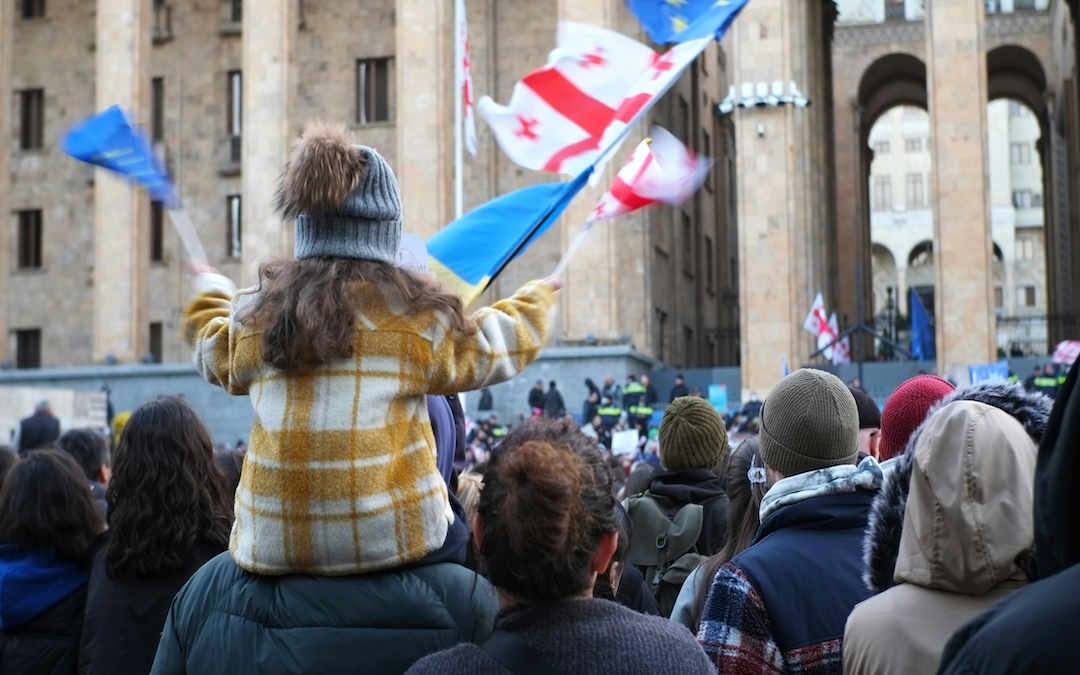In June, we organized as part of our Academy for Assistants of Members of the Parliament a briefing on the current situation in Georgia in light of the upcoming October elections and recent mass protests in the country. The briefing was led by Eto Buziashvili, a research associate for the Caucasus at the Atlantic Council’s Digital Forensic Research Lab (DFRLab). We bring you a brief summary of the main takeaways.
In recent years, Georgia has faced a significant division, with its people firmly aspiring to join NATO and the EU, while the ruling party, Georgian Dream (GD), exhibits increasing authoritarian tendencies. This struggle reflects the influence of Russian-backed policies threatening Georgia's democratic institutions and media freedom. Central to this is the controversial foreign agent law, which has ignited fierce debate and protests. The law aims to label NGOs and media outlets receiving over 20% of their funding from abroad as "foreign agents." Many at home and abroad argue it is less about transparency and more about controlling institutions that serve as checks on government power, stifling civil society and free media.
Under Bidzina Ivanishvili, GD has targeted media and civil society, introducing legislation modeled after Russian laws to restrict free media and public discourse. Ivanishvili, a key figure in GD, has significant property and connections in Russia. His influence over Georgian politics is seen as part of a larger Russian strategy to keep Georgia within Moscow's sphere of influence. In an April speech, Ivanishvili labeled the West as an external enemy, NGOs and media as an internal enemy, reinforcing control by portraying critics as threats to national security. Georgia's economic ties with Russia complicate its geopolitical stance, despite 70% of Georgians desiring NATO and EU membership as Buziashvili stated. 70 % Gruzínců si přeje členství v NATO a EU.
Public protests against GD’s actions have faced brutal crackdowns, with unidentified men beating protesters and employing intimidation tactics. Ivanishvili's control over the institutions is crucial as Georgia approaches its October parliamentary elections. There is a clear effort to limit media scrutiny, echoing concerns of Russian influence. Following Russia's invasion of Ukraine, Georgia did not join sanctions against Russia, resumed direct flights between Russia and Georgia, and facilitated the relocation of Russian companies to Georgia, diverging sharply from public pro-Western aspirations.
Since 2022, GD has amplified propaganda blaming the West for the war in Ukraine, using sophisticated disinformation tactics like the "Doppelganger" operation. The Western response to Georgia's authoritarian shift has been mixed. While the U.S. has imposed sanctions on 30 GD representatives, the EU's response has been less decisive, leaving many pro-Western Georgians feeling abandoned.
As the October elections approach, the stakes are high. Civil society organizations and free media remain crucial in defending against authoritarianism and Russian influence, striving to uphold democratic values and Euro-Atlantic integration. The foreign agent law threatens Georgian democracy, necessitating a robust Western response to support Georgia's pro-Western aspirations. The world watches to see if Georgia can resist authoritarianism and continue its democratic journey.
The civil sector is under attack, not just in Georgia but also in e.g. Slovakia. It's crucial that we support them, and that they support each other.
Author of the summary is Adéla Neumannová
Photo by Sheldon Kennedy from Unsplash.

